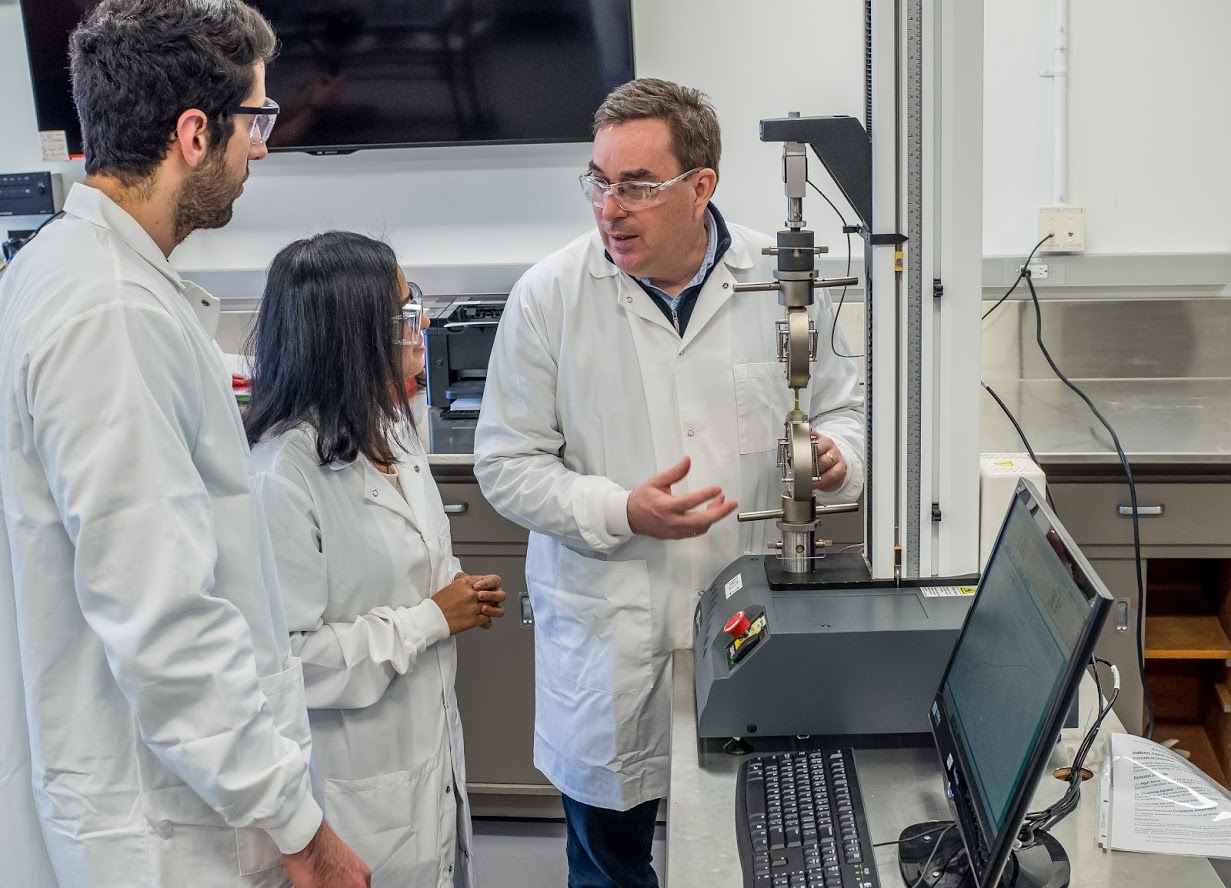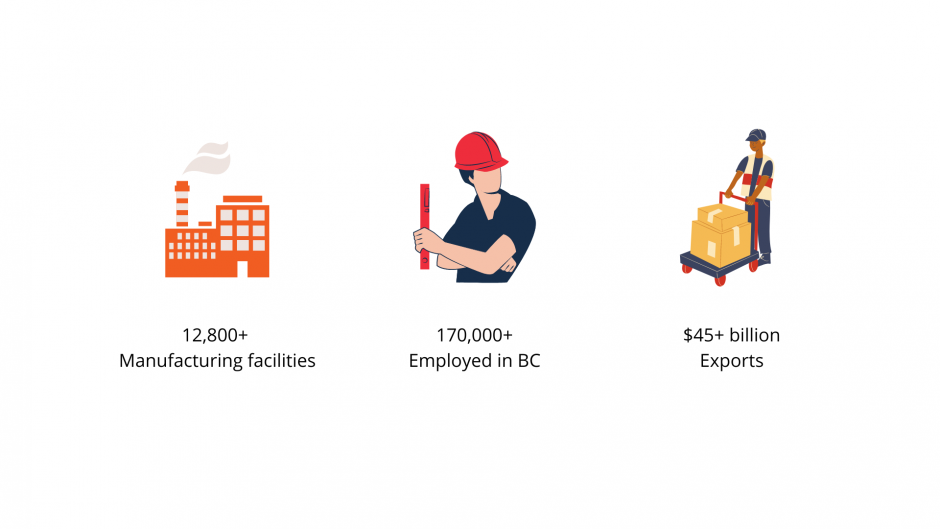
Manufacturing in British Columbia

After real estate and construction, manufacturing is the third-largest contributor to the BC economy, with $17.7 billion or 7.2 percent of GDP in 2018. With an average annual growth rate of 3.9 percent over the previous five years, the industry has been expanding steadily and more quickly than the entire economy. Manufacturing dominates exports, accounting for 61 percent of all items exported, which adds additional money to the economy. The province’s abundant natural resources are used by BC’s broad industrial sector to produce high-quality and innovative forestry, mining, and agrifood products.
It also has a strong non-resource manufacturing sector, with shipbuilding, aerospace, and machinery production capacity in addition to significant businesses in cutting-edge, environmentally friendly industries including clean technology and life sciences. The province of British Columbia’s big ports of Prince Rupert and Vancouver provide easy access to international markets for manufacturers, as do its highly qualified workforce, inexpensive renewable electricity, and solid business ties with Asian and international markets.
Job market
Manufacturing engineering is undergoing a dramatic transformation as a result of technological advancements, big data, and analytics. As a result, the needs of today’s manufacturing industry are not the same as they were previously. Our province is Canada’s third-largest manufacturing employment centre (BC hires more than Alberta and roughly 3x the number of people as Saskatchewan and Manitoba in this area). Having said that, our hiring numbers are lower than those of Ontario and Quebec, but these provinces have long benefited from a strong talent pool, a large number of local businesses, and proximity to the United States. According to Statistics Canada, there are 178,300 manufacturing jobs in British Columbia. This represents a 2.2% growth from December 2017 to January 2018 and an overall 4.6% growth from January 2017.
To continue to build on BC’s strong manufacturing foundation and expand to meet the projected future needs of “Advanced Manufacturing,” we must create a local talent pool to meet the demands of current and future industries. The new manufacturing engineering programme at UBC is geared toward preparing students to be that future.
Industry and jobs for manufacturing engineers
There are numerous great prospects for manufacturing engineers across a range of industries given their capacity to develop goods, organize procedures, and optimize production environments:
- Transportation, aerospace, automotive and rail.
- Computer and electronics manufacturing.
- Production of components for clean energy and biomedical applications.
- Industrial and government research facilities.
- Government and regulatory agencies.
- Consultants in professional business services and educational services.
Specific occupational opportunities include work as a Control and Implementation Specialist, Systems Analysis Engineer and Quality Control Specialist, among many others.